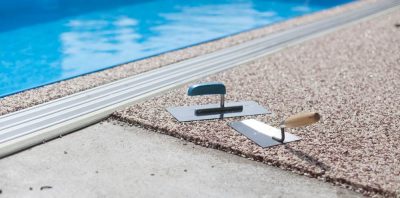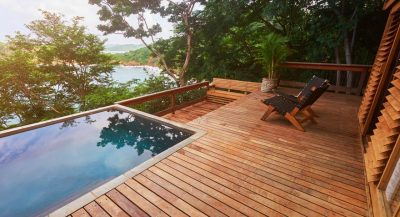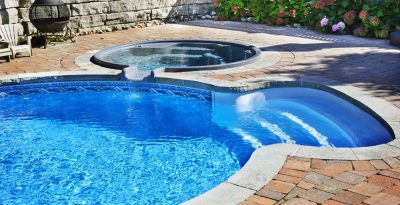- Oneflare /
- Cost Guides /
- Inground Pool

How much does an Inground Pool cost?
$25,000 - $100,000
How Much Does An Inground Pool Cost?
An inground pool is a great way to beat the summer heat and add value to your home. It is tempting to jump in and hire a contractor, but before you do, you need to consider a few things first. Inground pool cost varies between $25,000 and $100,000, depending on the size and type of pool that you have installed.
Factors Impacting the Cost of Inground Pools
New inground pool cost depends on several factors; one of them is the size of the pool that you envision. The price of an inground pool is often much higher than above ground pool cost for a similar size and shape of the pool, but an inground pool has a longer life. One thing that you need to consider is that above ground pool cost does not involve as much on-going maintenance as inground pools.
Size of the Pool – The size of the pool is one of the most significant factors that affect pool cost. Small inground pool cost can be expected to be much less than an Olympic-size pool. For example, a 5m x 3m plunge pool would have a base price of $24,000. A 15 m x 2.5 m lap pool would have a base price of about $52,500. These examples do not take into account the costs for excavation, heating, the interior finish, waterline tile bands or other features.
Terrain and Elevation – Another factor that will affect pool cost is the type of landscaping and features that you want to include. Landscaping costs include paving, retaining walls, fencing, plant material and installation. The materials chosen will affect the price. For example, coping pavers cost between $35 and $60 per piece. Labour to have 60 pavers laid can be expected to cost between $1,000 to $1,500. If you have a slope or changes in elevation in the area selected for the pool, you may also require excavation and levelling services. You can expect to pay about $3,000 to $4,500 extra for these services.
Local Regulations – Local regulations will also affect swimming pool cost. The most expensive regulatory cost is the type of fencing that is required. Fencing requirements differ according to location. In general, glass fencing costs between $300 to $450 per metre installed. Aluminium fencing is a bit cheaper at around $150 per metre installed.
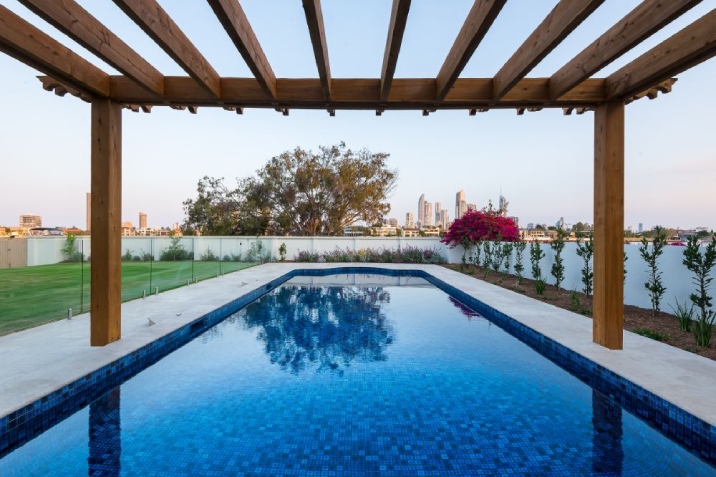
Large inground pool with a view. | Source: Reds Landscaping
Price Estimates for Different Types of Inground Pools
The type of pool chosen will affect the final cost of your pool.
Fibreglass – Fibreglass pools are in the moderate range choice. They are permanent and more durable than vinyl pool liners, but less expensive than concrete. A fibreglass shell costs between $6,500 and $25,000, and this does not include installation and any additions, such as fencing, pool houses or heating.
Concrete – Concrete pools are the most durable, but also the most expensive. They will often need to be resurfaced every 10 to 15 years. A concrete pool can cost between $35,000 and $100,000, depending on its size and shape. Any landscaping or extra amenities that you choose will push the price to the higher end of this estimate.
Vinyl Liner – A vinyl pool liner is the lowest priced choice, but it is also the least durable. While newer pools created from heavy-grade materials, they can still be punctured. The average DIY pool kit costs about $4,000 to $10,000, and this does not include any installation costs. Also, if you choose the DIY route, you chance missing something and having to hire someone to fix your mistakes.
Other Finishes – Finishes, such as natural stone, can create a relaxing environment, but they also add to the cost of the pool. You can also choose additional features, such as a saltwater pool that mimics swimming in the ocean. These can add significantly to the cost of the pool, pushing it over $100,000. The sky is the limit on these high-end additions.
Inground VS Above Ground Pools
When it comes to choosing an above ground pool or an inground pool, there are many factors to consider. Initially above ground pool prices are often much lower than installing an inground pool. However, inground pools last longer and add value to your home. Although they are much cheaper initially, the lifespan of an above ground pool is often only around 5 to 10 years at the most. An inground pool can last many decades, particularly if it is maintained and in good condition.
Even though an inground pool lasts longer, there are some downsides. For instance, you can expect to have it resurfaced about every 10 to 15 years, and this can be expensive. Also, there is little flexibility if you decide to change the type of pool or landscaping around it without significant expense. One of the biggest deciding factors is how long you anticipate staying in your home or whether you want a pool that will increase its resale value.
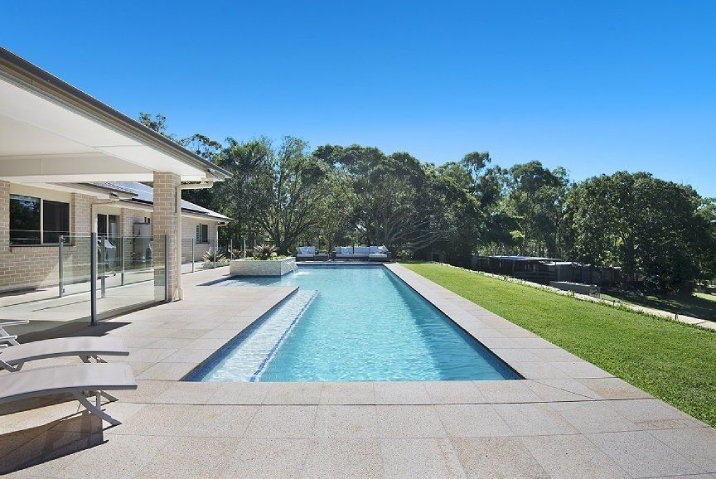
An L shaped backyard pool with water feature. | Source: Cityscapes Pools And Landscapes
How to Hire an Inground Pool Installer
When you hire a pool installer, you want to make sure that they will do a good quality job at a reasonable price. When hiring a professional, you will be more likely to be satisfied with the work if you get an accurate initial estimate and hire a licenced and qualified professional. Hiring the right person will ensure you get the results you envision. Here are some tips for achieving these goals:
Creating an Accurate Estimate
Tip #1 – Know the size and shape of your project
Tip #2 – Research materials prices
Tip #3 – Find out about local regulations and the costs of compliance
Tip #4 – Get multiple quotes
Licencing and Qualifications
Tip #1 – Make sure the contractor is licenced to work in your area
Tip #2 – Check out any insurance or warranties that they offer
Tip #3 – Get references or try to see work that they have done in the past
Tip #4 – Remember that price is not a reflection of the quality
How to Save When Hiring a Pool Installer
Tip #1 – Get enough information to receive an accurate estimate
Tip #2 – When comparing prices, make sure you know what the quote is offering
Tip #3 – Convey your final expectations for the project so that it is done right the first time
Tip #4 – Estimate the benefits to your home value before you begin shopping
* The cost data is based on Oneflare and third-party sources
